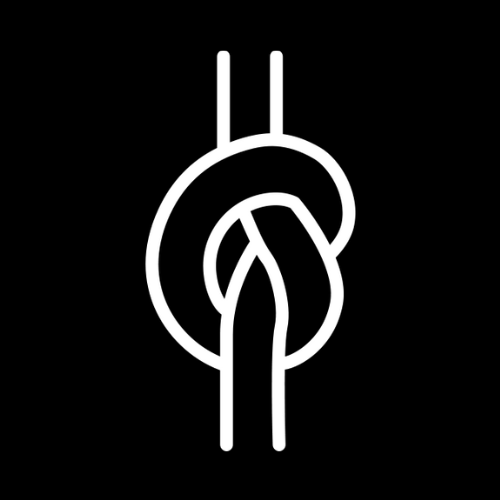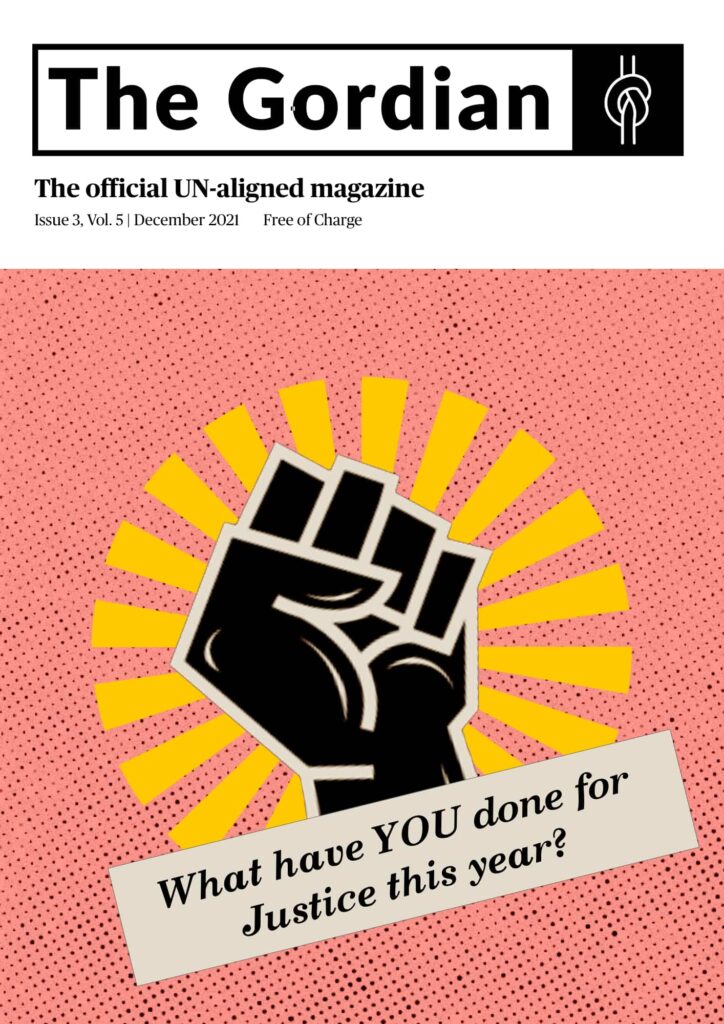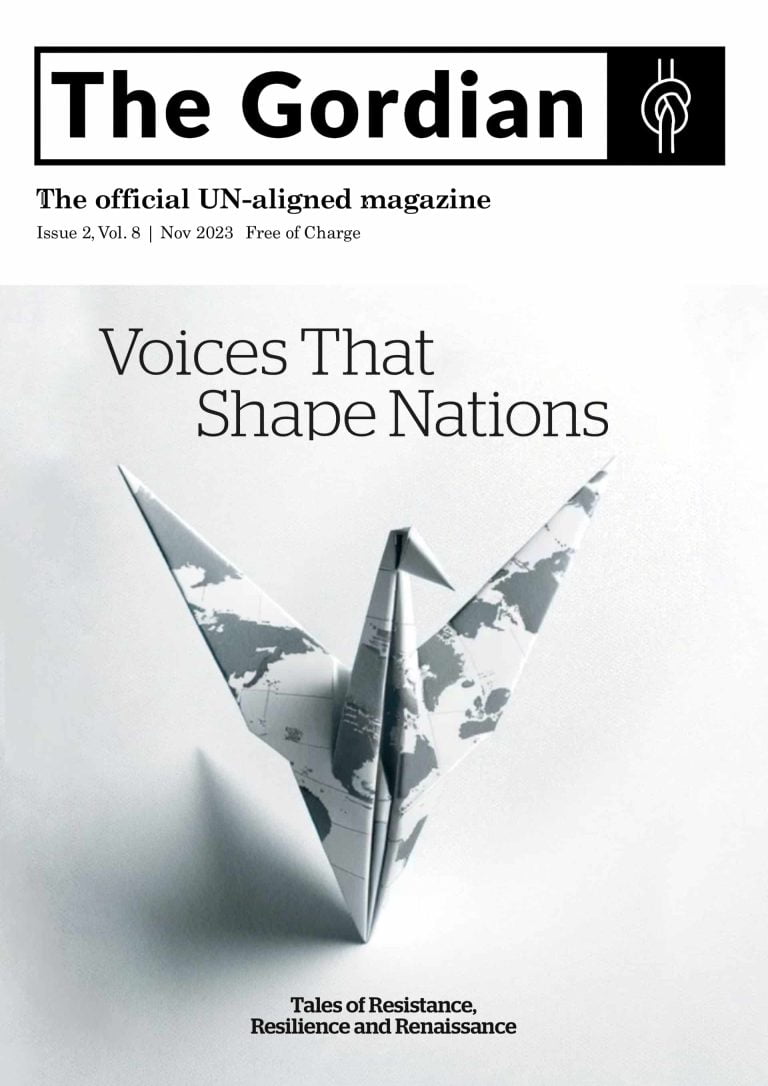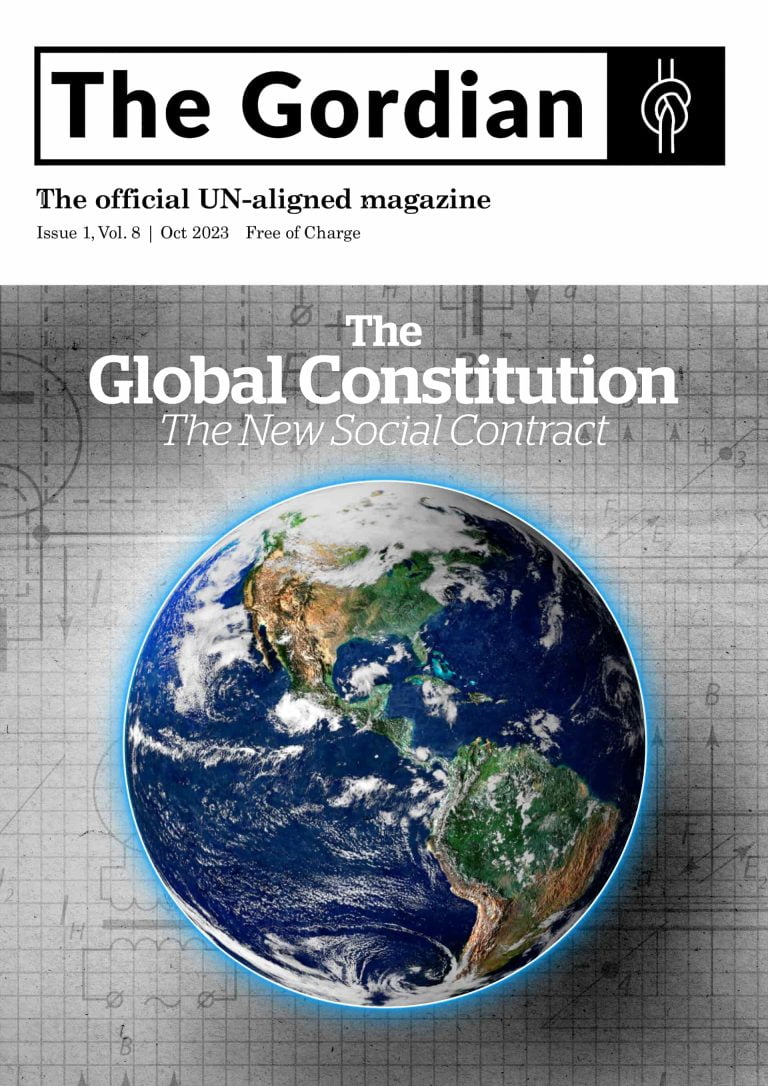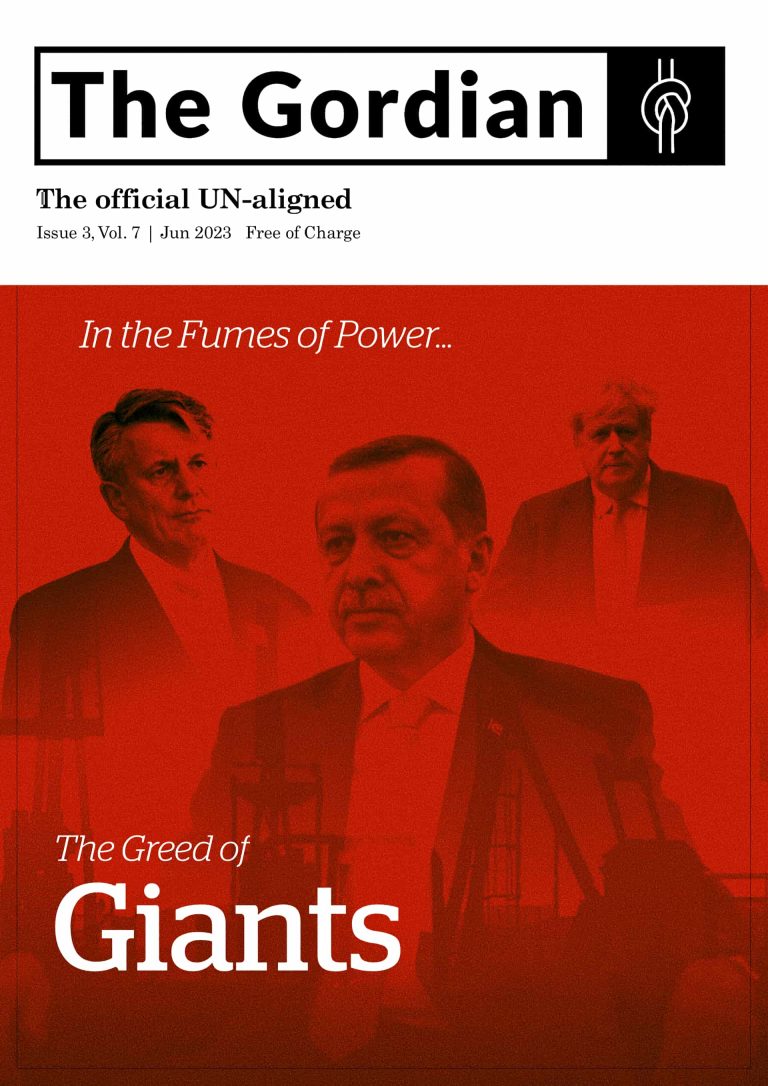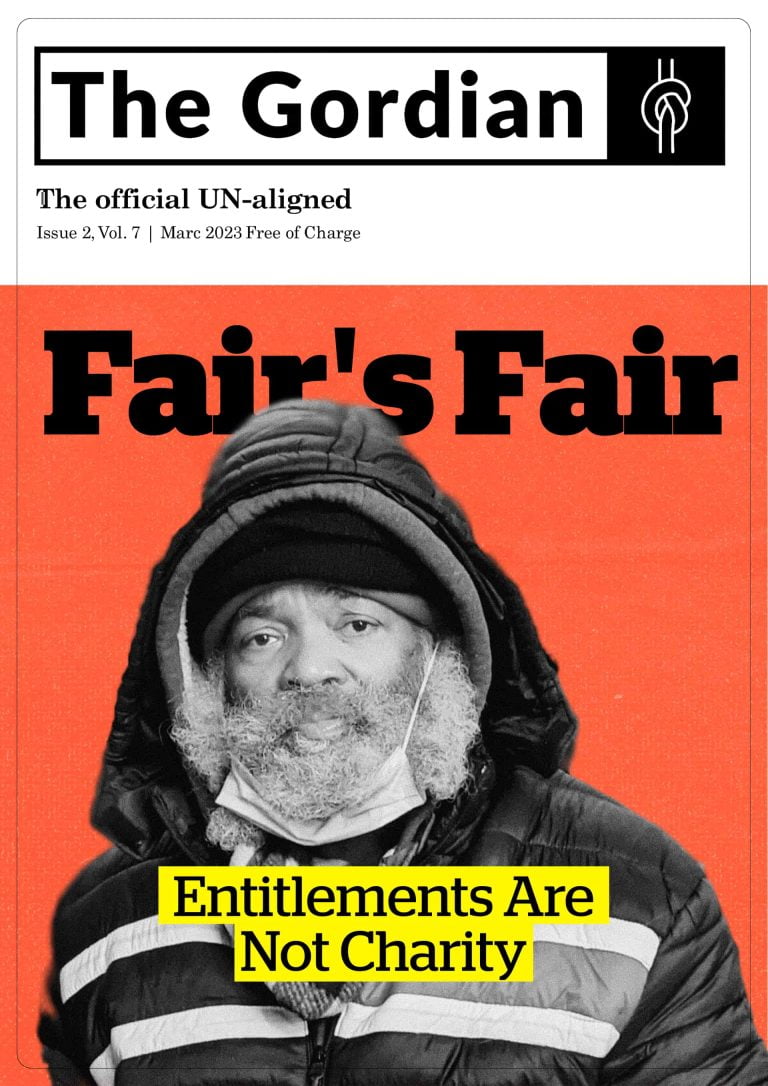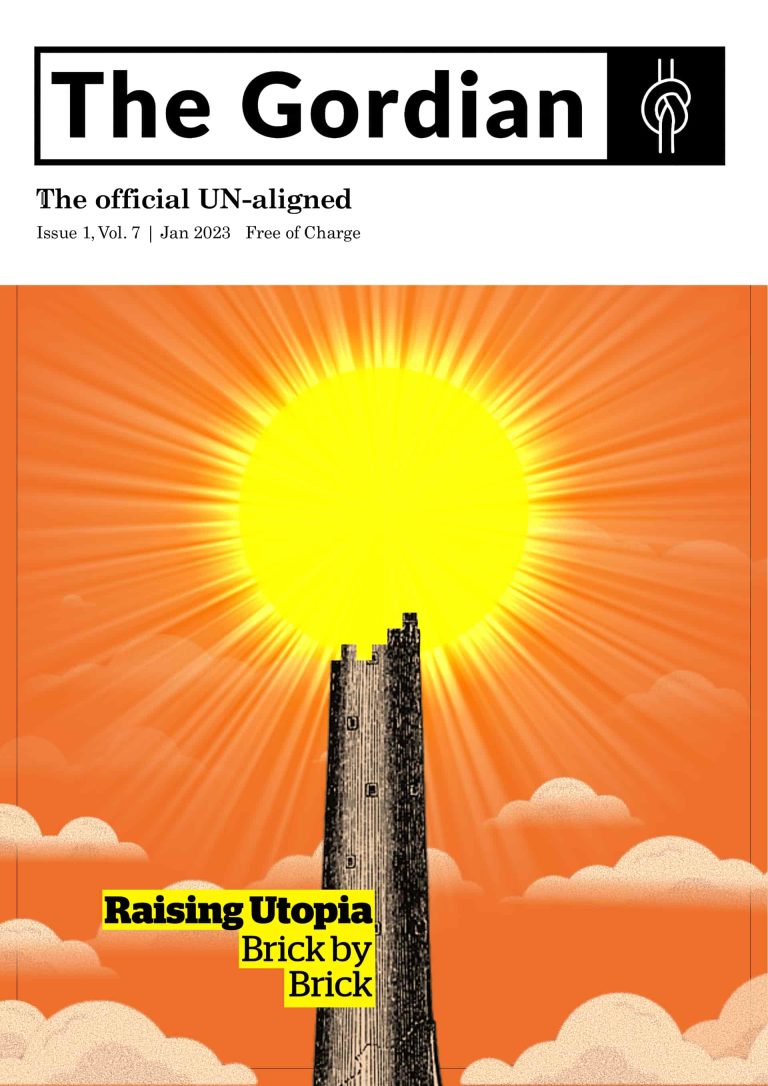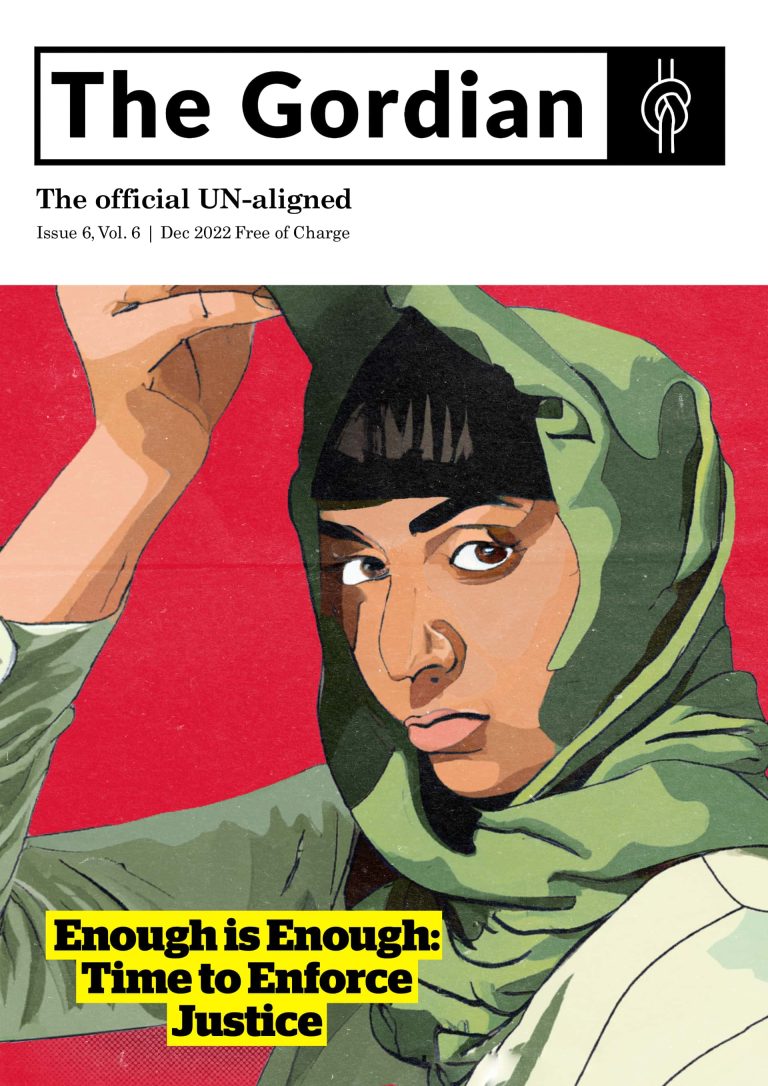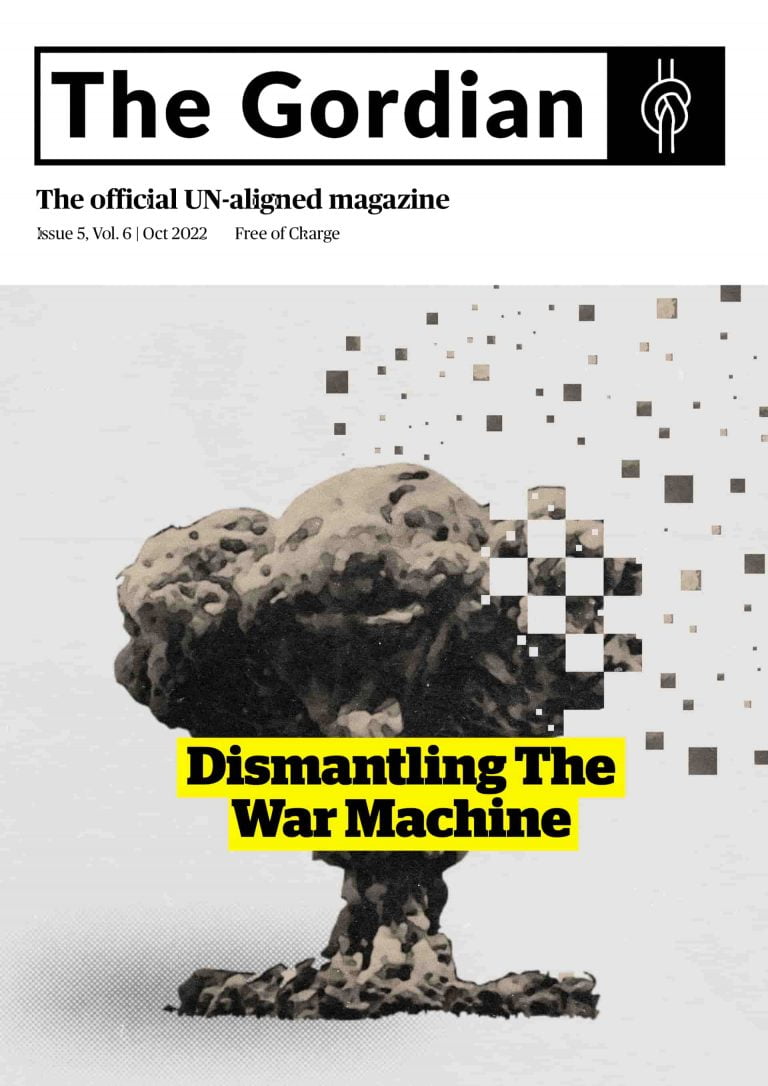Support The Gordian with a Patreon subscription
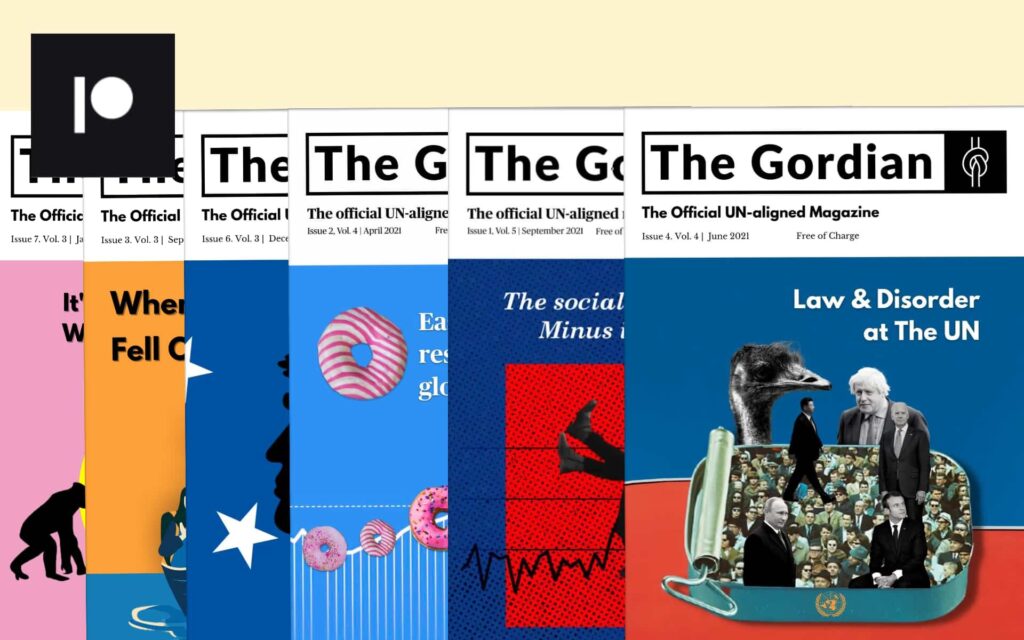
The Gordian Magazine is an open, independent publication that is read by hundreds of people around the world. Its main purpose has always been the creation of a platform for discussion and dissemination of knowledge; and with your support, we hope to take our game up a notch and build on this for many years to come.
So far we have managed to do without any financial support, however, as the organisation has grown our need for fundraising has become more and more crucial.
Your support will enable us to spearhead human rights, animal welfare and environmental protection around the globe. It will help us represent you and your ideas of what a united world should look like and facilitate our impact at international events. It will also extend our reach with more powerful networking and journalism.
“The Gordian will remain a free publication”
Having asked for your support, it needs to be clarified: The Gordian will always be a free publication. It will remain the magazine that brings the bold voices and ideas of UN-alignders who dream of a united nation that puts humanity before nationality and human decency above the self-interest of super states.
So please support us only if you are in a position to do so. In exchange for your generous support, we offer small perks as a token of our gratitude. You can learn more about them by clicking the link below.
Every contribution, whether big or small, means we can keep investigating and exploring solutions to critical issues of our time. And it only takes a minute.
See also:
Support the Gordian Magazine through non-financial ways →
Learn how UN-aligned uses its financial resources →
The Gordian Monthly Recap: Podcast
By Ruby and Ariana
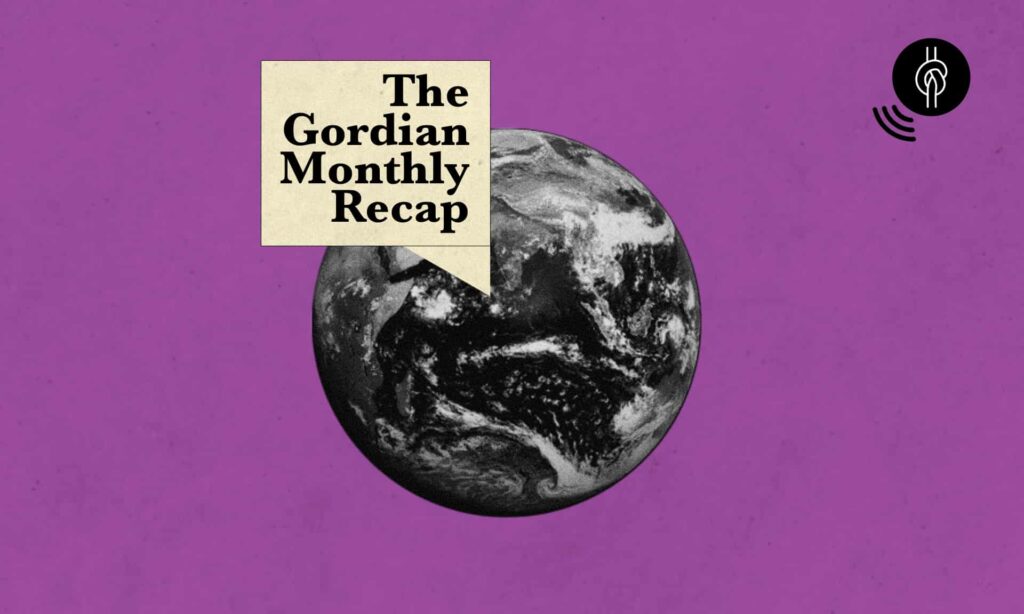
In this episode of Gordian Monthly Recap, Ruby and Ariana help you catch up with everything that happened in November 2021.
Selective Justice: Nine Rings of Moral Tunnel Vision
By Adrian Liberto
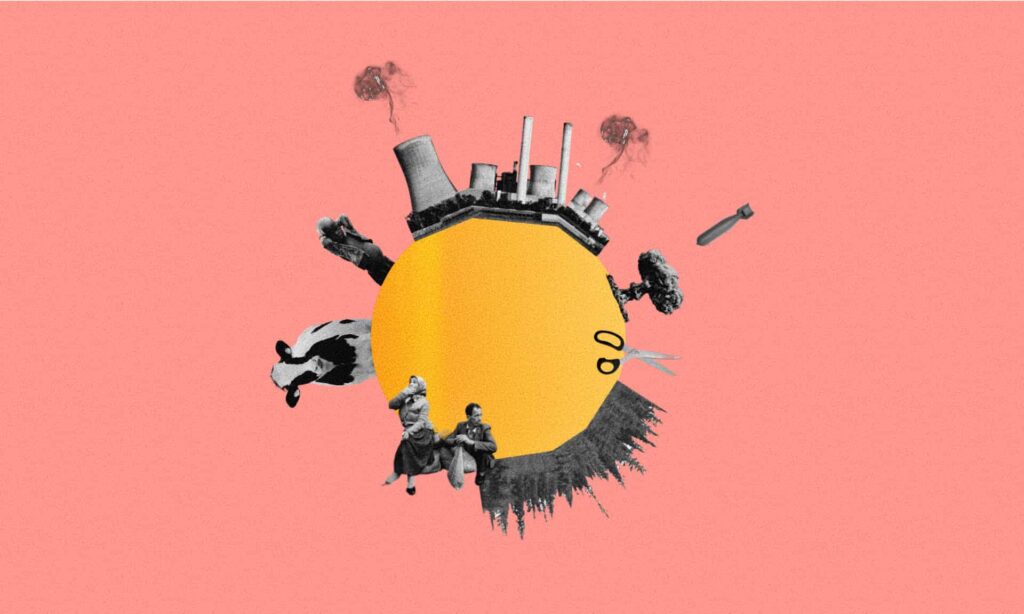
Deluded people generally believe that they would have been on the right side of history, without ever really questioning whether they are on the right side of what is making history. Sure, now, most people are convinced that they would have been against slavery, child labour, the burning of heretics and cannibalism… but given their same mindset, would they have been?
All those practices were legal or socially acceptable; and sadly, for most of us, that social acceptability is what defines our morals. Only activists, innovators, rebels and the like push those boundaries, often at a crushing personal cost, until one fine day, after they may have been dead, buried and forgotten for many years, the lazy majority mindlessly enjoys and takes for granted those hard-won rights. The problem is not only the perpetrators of injustice. As Einstein rightly pointed out:
“The world is a dangerous place, not because of those who do evil, but because of those who look on and do nothing.”
This insipid majority looks, but does not see, blinkered by an innate desire to reap without sowing, and safe in the knowledge that as long as one does not make eye contact with injustice, it should leave one well alone. However, there is only so much injustice nature can endure and the chickens always come home to roost in the end. Extreme weather, pandemics, international terrorism and mass extinctions are starting to hit home. Perhaps we do not live in a bubble after all and we are ignoring the bigger picture at our own risk.
So, what serious issues relating to justice may we be oblivious to? Here are just nine possibilities:
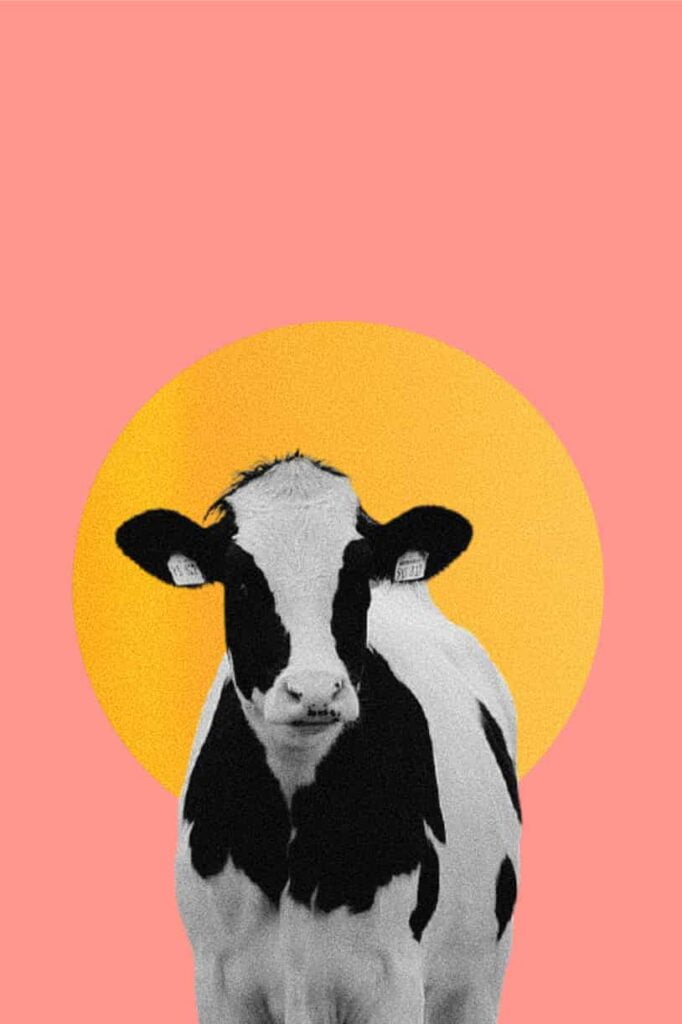
One: Animal Cruelty
We all love cats and dogs and are outraged when we hear of instances of abuse. In some countries people actually eat them! What savages could do that?
Well, these same pet-lovers are quite happy to pay for the torture and abuse of other equally loving and intelligent animals. Many hate vegans for trying to point out their hypocrisy. Ignorance is bliss, so please keep your opinions to yourself. Sure. The problem is they are not opinions. If we had to kill humans at the rate we kill farmed animals, the human race would be wiped out in just over two weeks. But death is just the end of a process filled with horrific abuse.
A couple of days ago I read a piece in The Independent about a 27-year-old man who claimed he was put off meat after he noticed a pig nipple on a slice of bacon in his McDonald’s roll. McDonald’s said it was “confident” that it was not a nipple, but the poor chap is now considering going vegan. What the hell? What did the man think he was eating if not bits of a slaughtered pig? And yet, that is how most people operate. They draw a magic line between the “product” and the process that they are paying for so that it could be delivered to them.
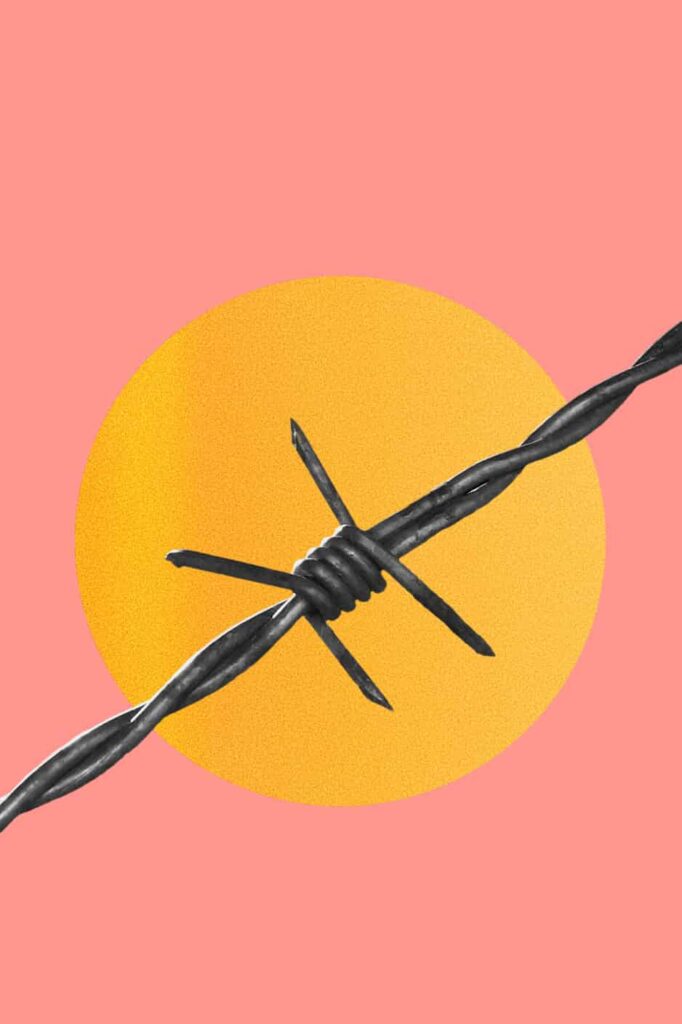
Two: Freedom of Movement
People are generally comfortable with the laws of their land regarding freedom of movement and if they are not, it is because they want their national borders to be even tighter. However, life is not a game of musical chairs. We should all have the right to move around and access whatever opportunities are available. True, some regulation is needed since we have allowed the inequality around the world to get so out of hand that a free for all would lead to mass migrations that would overwhelm better-off nations. Nevertheless, this is not an excuse to doom people to a life without a chair. Inequalities need to be addressed so that freedom of movement can take place in a scenario where there are enough chairs for everyone and no necessity to rush to the few good places.
Moreover, countries should not have the right to stop ordinary citizens from travelling to visit relatives and family members; and yet this happens regularly in so-called developed countries. People in visa offices may abide by well-defined draconian regulations, or they may have enough flexibility to allow them to play God, either way, innocent people are made to suffer. The fact is that the situation will only get worse unless people are prepared to start acknowledging the issue and begin doing something about it.
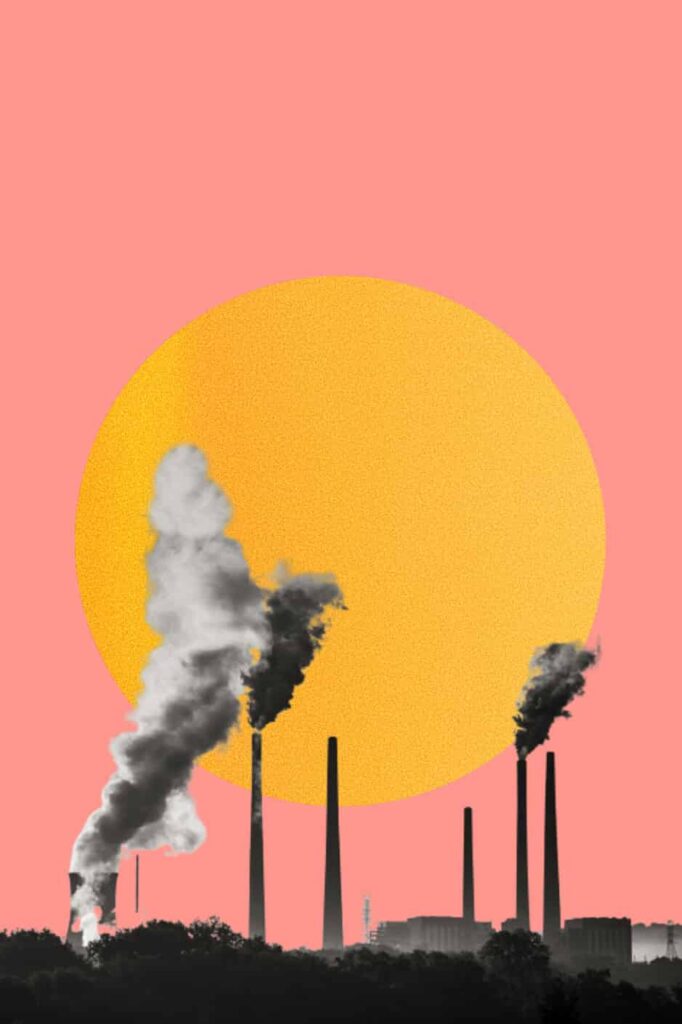
Three: Exploitation and Pollution of Nature
The main problem with capitalism is the word itself: it overreaches and leaves everyone, other than seasoned scholars, assuming it is what they imagine it to be. I may envision healthy bartering, consensual exchange and creative investments. Hence, anti-capitalists may appear to me as leftist fanatics whose bitterness is motivated by their own failures.
Someone else may see the mindless plundering of natural resources, the exploitation of defenceless peoples and the obscene accumulation of wealth to the detriment of the starving millions. To these, the capitalist represents all that is wrong with this world. So let us leave semantics aside and focus on the actual issues.
On the one hand, the earth is dying. It is now official: humanity is on code red and the doomsday clock is ticking, just one and a half minutes or so away from midnight. Are we bothered, or are we happy to carry on with our lives as though it were not our problem?
On the other hand, countless people are dying too, more and more of them every year through pandemics, pollution, hunger and climate related disasters. Most of these tragedies are man-made. Again: do we care? Do we bother to research the causes and solutions, while trying to do everything in our power to stem the tide? When history is written, if there will be anybody left to write it, will we be part of the problem, or part of the solution? Or will we be the dull backdrop that idly stands by as it all happens? It is happening now, so this is not a hypothetical question.
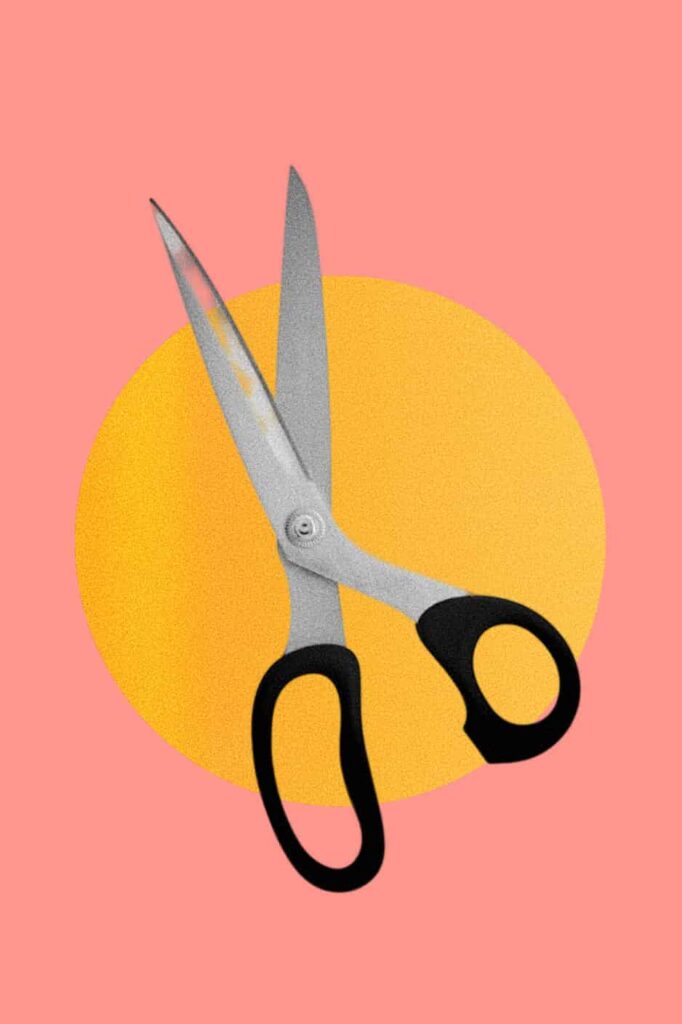
Four: Genital mutilation
The vast majority of people would agree that female genital mutilation is abhorrent, and yet when it comes to mutilating a boy’s penis without his consent, the silence is deafening.
Except for extreme situations, no one has the right to mutilate another’s body without their consent. I have written about the adverse effects of this injustice in a recent article, so I will not dwell on it here.
Circumcision is a big business, so just ask yourself whether you have been taken in by the propaganda that makes slicing off a boy’s foreskin seem normal.
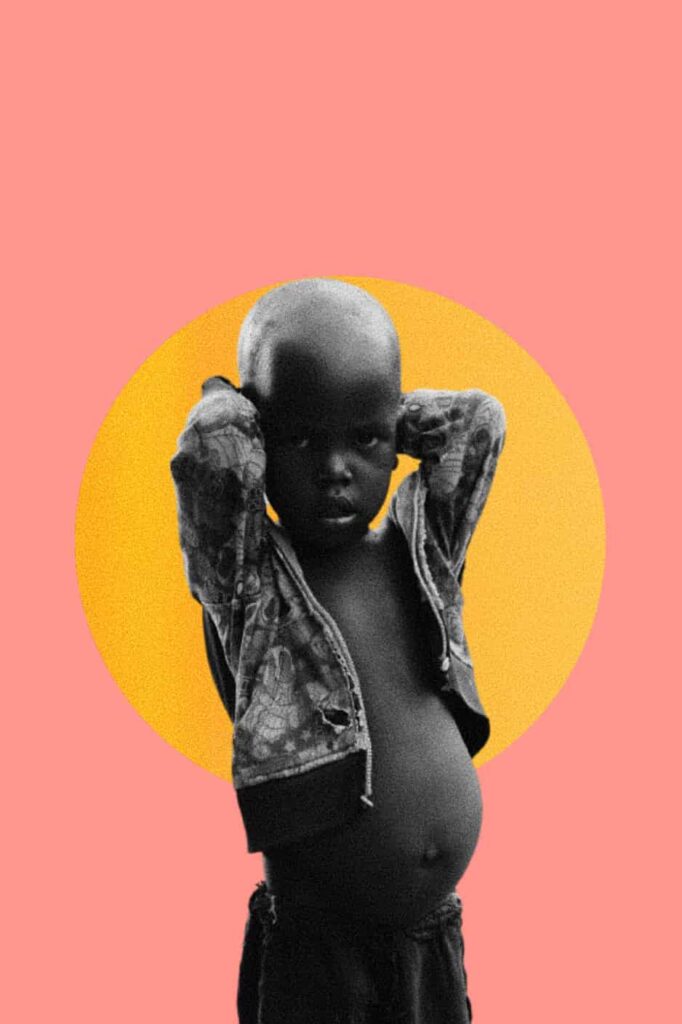
Five: Poverty
Poverty is not inevitable. It is a political choice and it is we who vote for the politicians that make those choices. The meat and dairy industries alone, for instance, are not only responsible for much of the pollution in the world, but also for an excessive use of resources that could otherwise resolve the problem of world hunger.
A few billionaires could do it too, but governments are happy to let them wallow in their billions and play their space games, rather than instituting policies that would ensure a better distribution of wealth.
Poverty is not only about hunger. It is about all sorts of hardships that can make life miserable or literally unbearable. We can still have our little luxuries, without these having to be at the detriment of another’s well being. This may mean a slight change in lifestyle, but it would certainly be worth it in order to build a fairer and more sustainable world. This seems obvious, and yet just look at the mighty US where half the population would vote for a party that considers free healthcare socialist nonsense. Ironically it is not only the people who need not worry about hospital bills who vote that way. Many are actually victims of such policies, which highlights the point of this article, namely that many of us are deluded. To a certain extent, we all are, but those who invest in introspection and research are clearly less so.
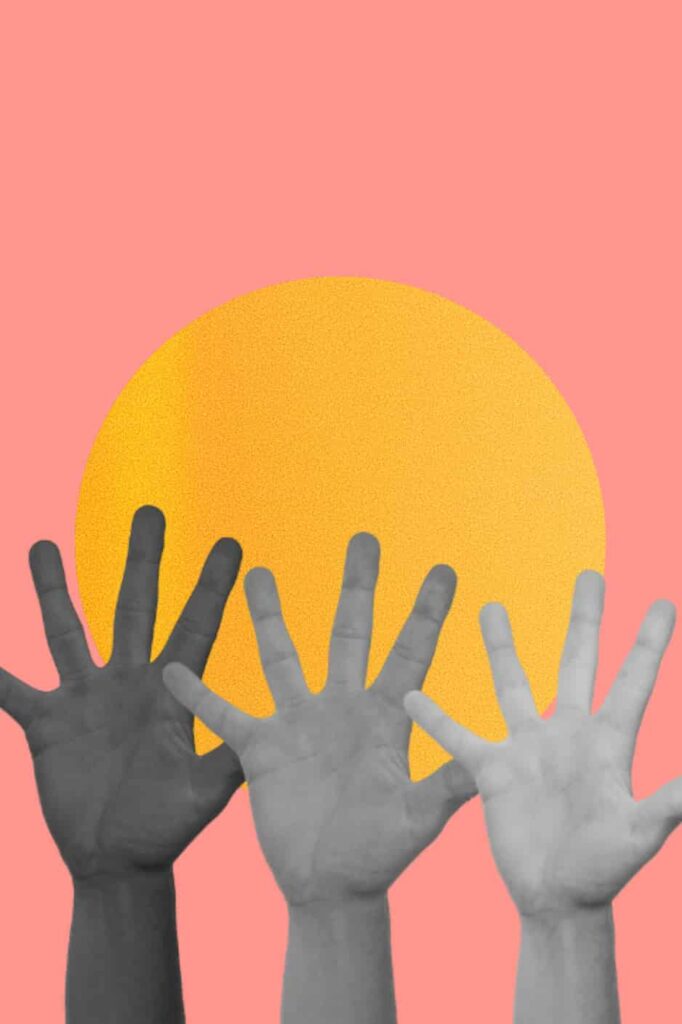
Six: Discrimination
Oh, how we love to discriminate! Race, colour, sexual orientation, religion, political affiliation, a different football team, even: that is all it takes to fill us with hatred or indifference. Often, we either justify our prejudice or delude ourselves that it is not there.
Religion is the perfect apologist, but culture is as insidious. We are all set in our moulds as jelly is, but many of us never leave the mould at all and therefore cannot even wobble towards a basic level of flexibility. Some like to think that they are created in the image of God, but it is they, rather, who are creating gods in their image; perhaps a God who is wrathful, vindictive and partisan.
Of course, some cultures may be more annoying than others and we may regard adherents to certain political parties as fools or worse. That is fair enough, especially when these sorts of people promote bigotry, undermine civil liberties and threaten our personal rights. The problem is when we tar everybody with the same brush or fail to question our own points of view.
Being deluded is no less toxic. Indignation at Black Lives Matter because all lives matter, for instance, betrays an insensitivity towards the serious issues that lead to such movements. This dismissiveness highlights a bias towards the privilege of a white majority that needs not concern itself with issues of justice and fairness.
Sadly, the media is very guilty of enforcing bias of all kinds. A little white girl may disappear in Europe and years later the media is still raking up the story, while hundreds can die daily of preventable causes as their stories remain under-reported or completely untold. As long as we consider a western life more worthy of compassion than one that is born in a poor or war-torn country, we will never understand the true nature of our conditioning.
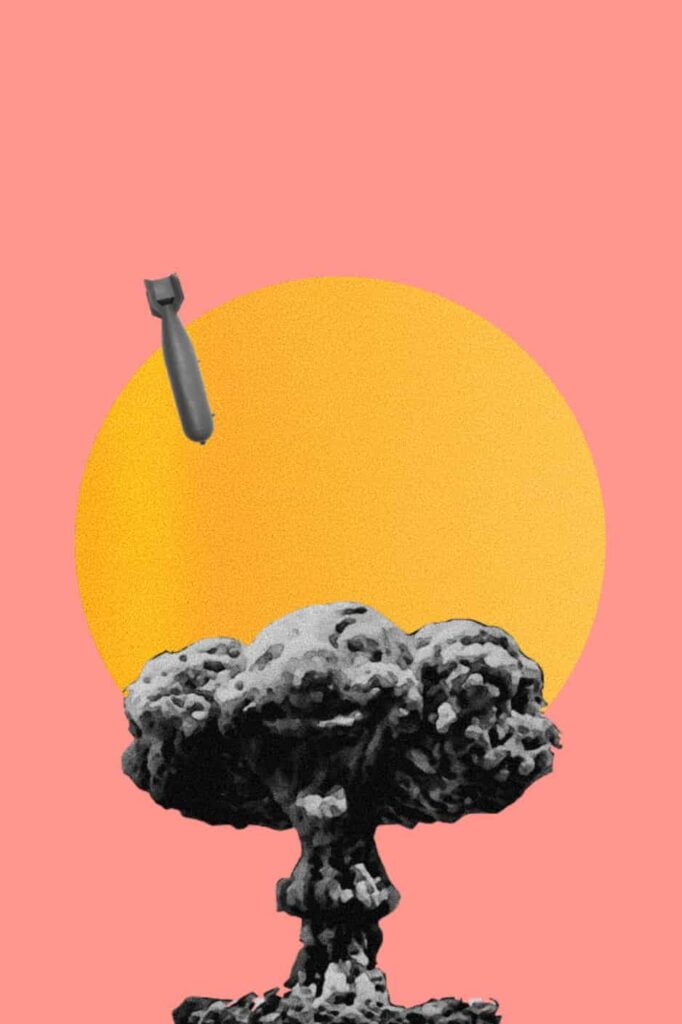
Seven: The Arms Industry
There are quite a few similarities between the arms trade and the illegal drug trade. Both are responsible for the deaths of millions of people and both manage to get into the hands of ruthless operators. Of course, the arms industry often does so well within a legal framework, so that supplying weapons to Saudi Arabia, Syria or Myanmar can proceed brazenly and openly, despite the innocent victims that these totalitarian and ruthless regimes will carry on slaughtering.
Then, there is the illegal arms trade; the type that supplies the likes of the Taliban with its arsenals. Missiles, landmines and tanks, however, are not created in secret attics. These productions and transactions take place with the connivance of many “democratic” governments; our governments perhaps. This dissemination of death and destruction will not stop unless we hold our governments and the United Nations to account. Do we even consider the immorality of these industries? Or do we gladly push them to the invisible margins of our convenient blinkers?
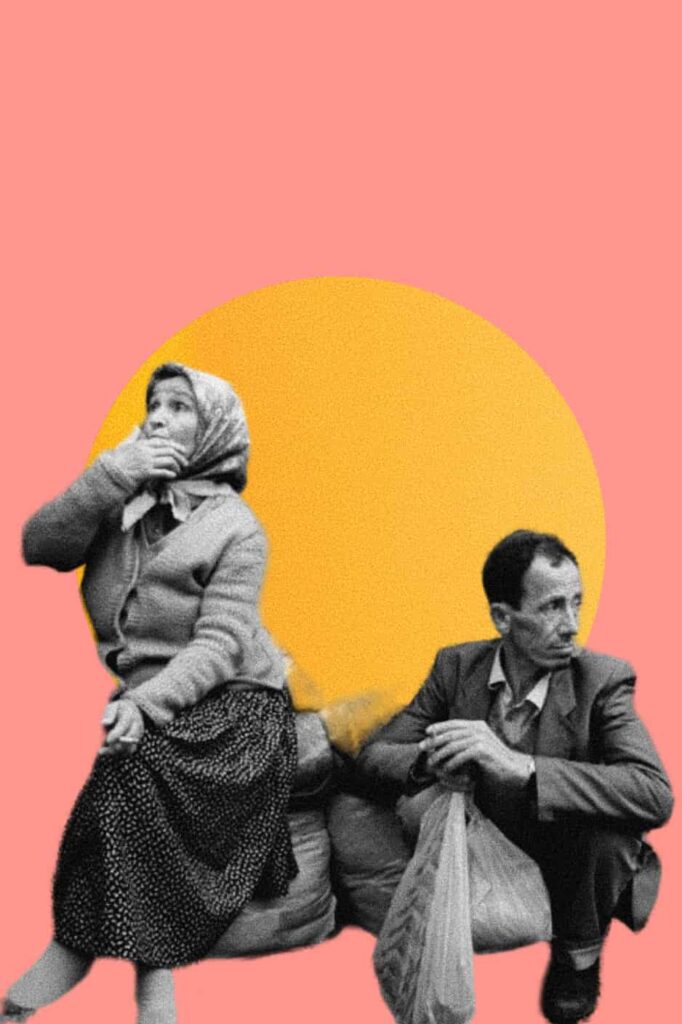
Eight: Statelessness
There are over four million stateless people in the world and the number is growing. These people were not born on the moon or in Mars. They are humans who were born on earth. True, this is pretty obvious, but equally obvious is the fact that as such they cannot be denied citizenship. And yet, they are! Where is the United Nations’ outrage or remedial actions in this regard? In the past, at least, thanks to Norwegian polymath and explorer Fridtjof Nansen, stateless people were issued passports under the aegis of the League of Nations from 1922 to 1938. Now, instead, such people are left to the mercy of nationalist regimes who prefer to leave them languish in a Limbo that precludes them from one of the most basic human rights on which many others depend: that of being a citizen.
We should not walk on by, like Dante through Hell, since by allowing humans to be treated as non-entities we are dehumanising humanity as a whole. Our outrage needs to be heard.
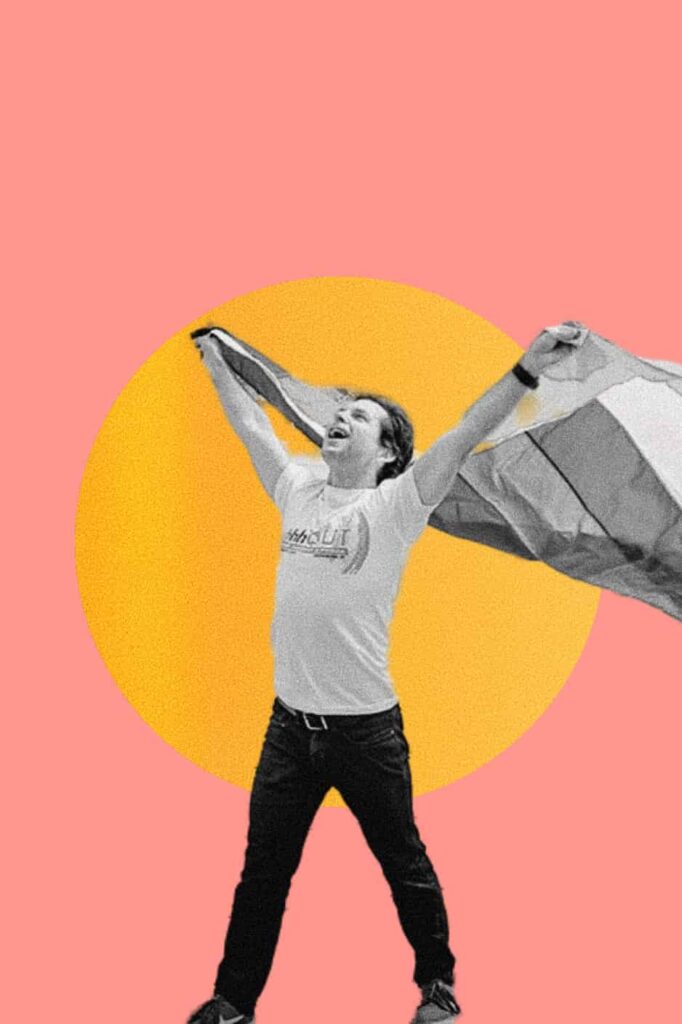
Nine: LGBT+ rights
As an integral part of the productive cycle, sex has been ritualised from the most primitive stages of evolution. Nevertheless, as humans evolve, they are no longer bound by these instincts for procreation. Indeed, nor are many other animals. There is a lot more to life than survival of the species, since without value, the species would be propagating for quantitative reasons alone rather than qualitative ones. We are more than just mechanisms for procreation. We have value and that value is linked to our personal identity which includes our loves and aspirations. Sadly, lingering rituals have been codified in religions and customs to such an extent that they have failed to keep pace with development; or ever appreciated and respected the wide range of manifestations of gender and identity.
If traditional roles work for you, all well and good, but judging and condemning others whose sense of identity is different to what you would expect it to be is wrong and none of your business. Our sense of identity is intimately ours and it is sacred. We have been conditioned to believe that we have the right to judge others in this respect: we don’t. If your mind can only cope with square and round holes, that is your problem. Individuals come in all shapes, and as long as they are not trampling on your rights, they can choose any holes they like, or none at all. If this disturbs us, then the problem lies with us and we should be questioning ourselves, not others.
Support us in this campaign: Countries who criminalise homosexuality must not be allowed a seat on the UNHRC
Help us push for a fairer world
UN-aligned members have already taken a stance by supporting an organisation that aims to break some of these barriers and shed light of issues that are holding the world back, but we could do a lot more with more active involvement from our members. If you would like to help us promote justice, please contact us so that we can discuss ways of maximising your input.
Still Life Without Flowers: A Glimpse Into The Arsal Refugee Camp
By Atika Harba
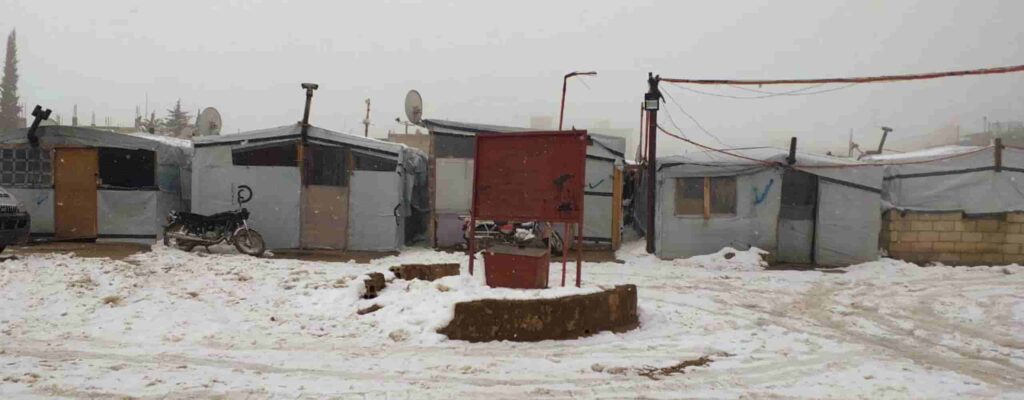
First, I will talk about my place of residence in one of the camps in Lebanon, Arsal, and how I was able to adapt to this difficult life, which does not resemble life at all. It is only days that pass without taste. One of the most difficult days of my life was when I was fifteen years old. My family decided that we should live In a refugee camp. At that time, misfortune and sadness overtook me, and I went into a state of depression. My life and the life of my family, including my grandparents, now revolved around a room, or rather a tent whose walls and ceiling were like plastic bag that did not protect against the heat of the sun or the cold of winter. We eat, drink, sleep, study and practice our lives within five meters; no more, no less. We try to live with this situation little by little, but nothing in this tent encourages us to continue, or to forget the pain we endure every day.
The life of the camp is very difficult. You look out the window and see the children playing with dirt and sand. This is their childhood. The sun has robbed the innocence of their faces, because there is no place to play except under its heat. As for the elderly, they are bored with the noise of their grandchildren, and you see that they have gone out to sit at the entrance of the tent for some peace.
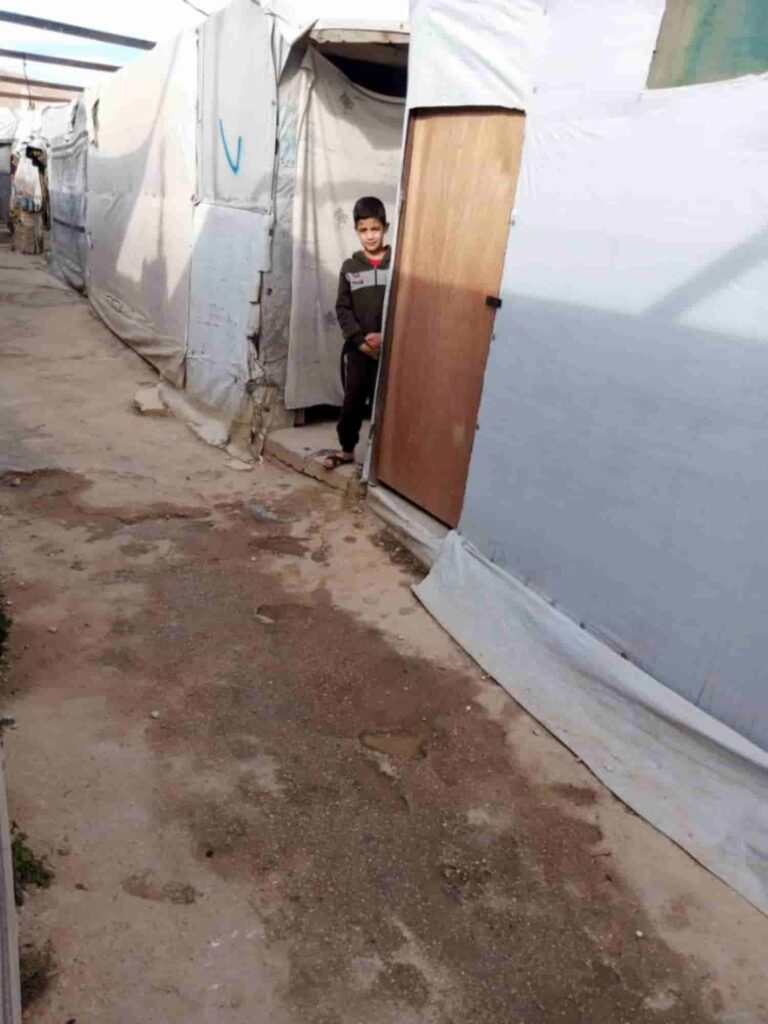
Even the sight of an old man sitting on a small rock with his hand on his cheek as he inhales the fresh air, speaks of sorrow. It is a scene that squeezes hearts, but we have no ability to do anything, this is our life. In winter , the lives of tents dwellers are turned upside down. The rains fall in abundance and cause torrents, and the water enters the tents, wetting them and everything within them.
The tent dwellers then have to wait until the sun shines again to dry their things under its heat. It can be a long wait. Then there is the snow. The snow that falls to turn our world white This is one of the greatest hardships for the tent dwellers. Snow accumulates on the roofs of the tents and sometimes causes them to collapse. Sometimes the roads that lead to the stores that sell necessities are cut off. So people suffer on many fronts. When the storm ends, that’s when the snow turns into ice. It covers the ground, causing many accidents, whether for car owners or pedestrians. This is the suffering of refugees in the winter in a nutshell.
This little article offers just a glimpse into our suffering and life in a refugee camp. A suffering that seems to have no end in sight.
- Atika Harba is a virtual interns at UN-aligned.
Syrian Refugees Heading for Another Tough Winter
By Jihan Al-Assad
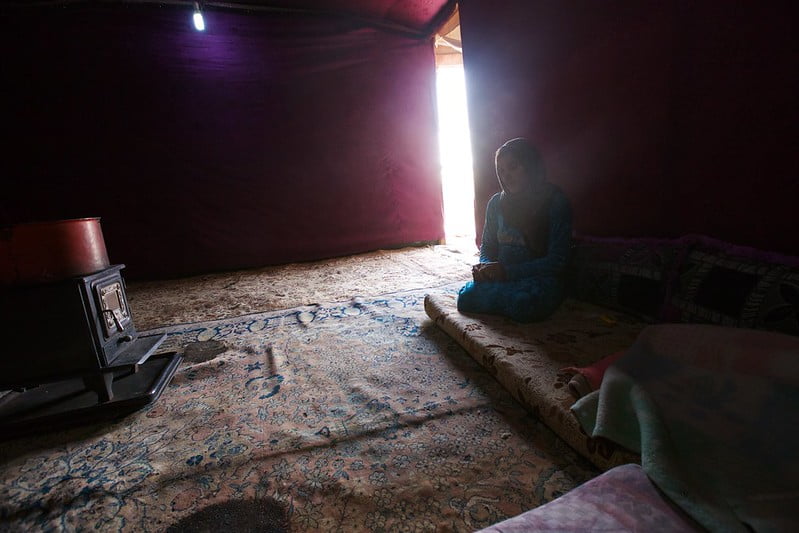
The mere mention of the word ‘refugee’ immediately evokes scenes of pain, sadness, hardship and cold.
Syrian refugees in Lebanon seem fated to suffer in all seasons. After the summer heat they face a wave of frost and snow, with cracked tents that do not protect against cold or rain. In addition, the lack of heating, coupled with malnourished bodies, means that the coronavirus is much more of an existential threat. They suffer; just as migrants and other refugees do, whether it is on the Belarusian-Polish border or elsewhere. The suffocating economic crisis in Lebanon, as well as legal and administrative procedures, have increased the suffering of the estimated 1.5 million Syrian refugees here, most of whom do not have employment and health care opportunities. Moreover, there is widespread illiteracy and ignorance among children in these camps because of the difficulty of sending them to school.
The Lebanese state, which is suffering from corruption, an economic crisis and the prospect of financial collapse, has not recognized them as refugees. This has exacerbated their suffering, with about 20 percent of Syrian refugees over the age of 15 having legal residence and 89 percent now living on less than $25 per month per person, according to UNHCR. Lebanon’s monthly minimum wage fell from $450 in 2019 to about $60 in 2021, pushing up prices for basic foodstuffs such as lentils and tomatoes, meaning more Lebanese are now relying on ration assistance just as most refugees are.
Every year as winter approaches, the suffering of Syrian refugees begins to increase dramatically, especially this year because of everything I mentioned earlier. A lack of resources and no solutions by UNHCR in Lebanon, or organizations speaking on behalf of refugees, is allowing the situation to fester. Owing to the sinking of some tents and the destruction of some others, families are forced to cram into relatives’ tents. Each winter, a number of children die from the cold, while calls are renewed daily for a definitive solution to a torment that Syrians are still unable to avoid.
As a Syrian refugee in Lebanon, I am forced to spend much of my time wrapped in blankets all day as a means of surviving the cold. We don’t just live the tragedy of displacement and asylum, but also the added hardship of food and heat deprivation.
We lack the most basic rights of any human being in this world due to a lack of sustainable solutions by UNHCR and the Lebanese authorities. Is this really the best that can be done?
- Jihan Al-Assad is a virtual interns at UN-aligned.
John Osborne and The Angry Young Men
By Alex Liberto
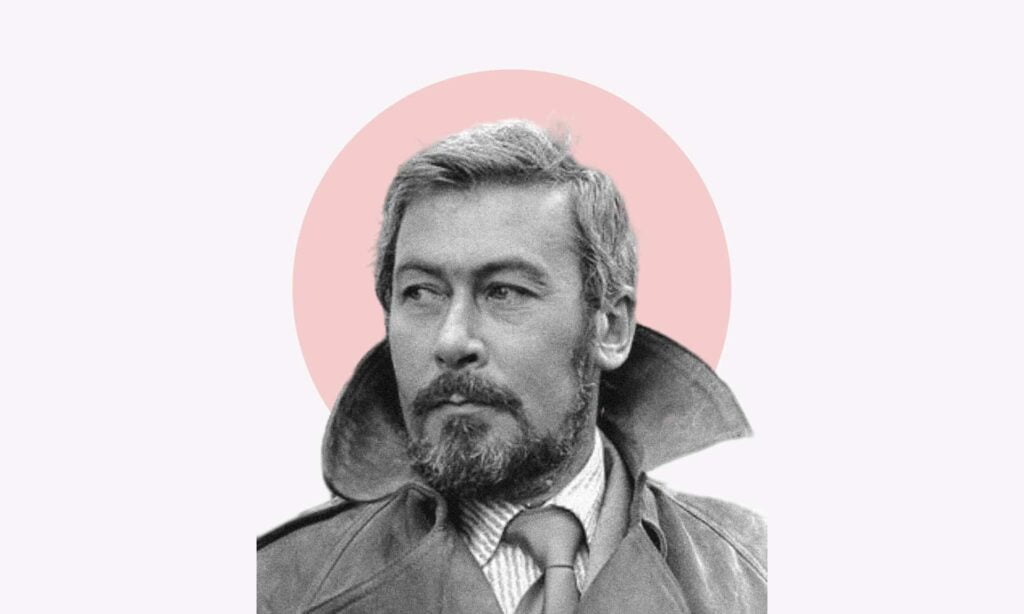
After our overview of post-war British drama with a survey of the Theatre of the Absurd, let us now look at another important literary movement that developed after the end of World War II.
The end of the war left a sense of discontent and disillusionment, especially with the younger generation. As society developed into a more affluent capitalistic and class-conscious structure, the younger generation became aware that the poorer classes were being exploited and this prompted them to voice their anger. A new class of writers, known as the Angry Young Men, came into being. They were expressing their anger through various literary genres, in particular through prose and drama.
The term, taken from Lesie Paul’s Angry Young Men, described all those playwrights, poets and novelists who expressed their anger and sarcasm against the emerging social friction between classes. The novelists who best captured this sense of frustration were undoubtedly Kingsley Amis, Alan Sillitoe, John Braine and David Storey.
As regards drama, the most significant playwright who represented the Angry Young Men was John Osborne, who we shall be taking a closer look at. Two other playwrights worthy of mention are Arnold Wesker and John Arden.
Wesker dealt with the discontent of the working classes with his politically motivated productions. He focussed on the problems of the individual by showing that each person’s troubles were actually triggered by the flaws of society, rather than by individual weakness. John Arden, on the other hand, dealt with the wider issues of postwar society. His best work was certainly Musgrave’s Dance (1959), which was influenced by Brecht. Arden studied the intricate nature of war and peace in light of the changing society.
John Osborne: life
John Osborne was born in London in 1929. His father was middle class and worked as a copy-writer while his mother, a barmaid, was of a lower class. John Osborne was therefore brought up in a type of social stratum which did not belong to any specific class. He was not able to identify either with the middle class or with the lower class and so grew up in that strange condition of constant struggle to reach an acceptable respectability. This social limbo into which Osborne was introduced from childhood affected his work as a playwright. The changing situation of post-war England was tangible. The Labour government introduced the Welfare State and the younger generation began to reject the conservative values of the past.
Politically, Great Britain found itself in a situation which was no longer one of supremacy. The two superpowers which had emerged from the Second World War were the United States and the Soviet Union. Osborne later focused on these themes of Post-War social turmoil and changing values. He had left school early and was plunged into that society in the deep end, at first working as a journalist for trade papers and then as an unsuccessful actor. However, it was his experience as a theatre actor which helped build his craft as a playwright. His sense of stage, movement and drama blended with his sense of social struggle and awareness. These ingredients contributed to the overwhelming success of his first major production, Look Back in Anger (1956). Many successful plays, TV scripts and film scripts followed. Together with director Tony Richardson, Osborne founded a successful film company which brought him international recognition. He died in 1994.
Literary Career
Look Back in Anger, released in 1956, was most certainly Osborne’s first successful play. It was not, however, his first. In 1950 when he was just over 20, he wrote, in collaboration with Stella Linden, The Devil Inside Him and in 1955 together with Anthony Creighton he wrote Personal Enemy. Two of his later plays, Epitaph for George Dillon, written in collaboration with Creighton, and Paul Slickey, a musical play, were also written before his successful Look Back in Anger.
In 1957 Osborne released The Entertainer, a play about a music-hall comedian, Archie Rice, who becomes an alcoholic due to his inability to feel successful. His failure seems to reflect the failure of English society in general. The play was later made into a successful film production. In 1961 he wrote Luther, a historical study on rebellion, based on the life of the Protestant leader Martin Luther King. Inadmissible Evidence (1964) was probably Osborne’s most successful play after Look Back in Anger. The story was about a solicitor whose disdain for society slowly projected him into complete isolation. Other plays produced during the 1960s were Plays for England (1962), A Patriot For Me (1968), and The Hotel in Amsterdam (1968).
In 1960 Osborne wrote the successful TV play entitled A Subject of Scandal and Concern and in 1970 he continued with his TV plays, releasing The Right Prospectus and Very Like a Whale. A year later he wrote West of Suez and in 1972 A Sense of Detachment, two plays which were accepted very well by the critics. In 1981 the first volume of his autobiography A Better Class of Person was published.
Style and Themes
Social Injustice is one of the major themes in the works of John Osborne.
The term Angry Young Men was coined in the wake of his Look Back in Anger. Osborne attacked the complacency of the English and the society that had developed after the war. The main character Jimmy Porter exemplified human suffering and the social struggle which afflicted the youth in that period. The angry young men were those who belonged to the lower classes, but who were given the chance to exploit a complete formal education; neo-intellectuals who reacted to the old conservative standards of class distinction with strength and disdain.
Another characteristic of Osborne’s work is his intricate study of the generation gap which created the dichotomy between the stable values and national greatness of the past, and the social protest and declining importance of Post-War Britain.
Osborne’s style is innovative in many respects. The structure of his plays reversed the traditional settings and conventional parameters of post-war English drama by doing away with classical theatrical methods. The structure followed the basic three-act play created by the French dramatists Eugene Scribe (1791 – 1861) and Victorien Sardou (1831 – 1908). Osborne did away with flashbacks and created a circular development in the progression of his story. In Look Back in Anger, for example, the setting in the first act is identical to the third act, a fact which underlines the repetitive nature of daily routine. Apart from the social sense of frustration in Osborne’s plays, which marked a break from the traditional themes belonging to pre-war Britain, the language was also a uniquely distinctive innovation. Whereas the language up to that point was created for the upper-class theatregoers, polished and somewhat erudite, Osborne’s characters used slang, colloquialisms and the everyday simple language of the middle and lower classes.
As mentioned, Osborne had worked in the theatre when he was a young man as an actor and it was this experience that helped create in him that acute sense of stage and theatre. His works of drama managed to exploit those essential theatrical elements that helped portray man’s relationship with the society he lived in and with himself, through the interaction of characters and events.
Power of Women: The story of Artemisia Gentileschi and Her Self-Portrait
By Carla Pietrobattista
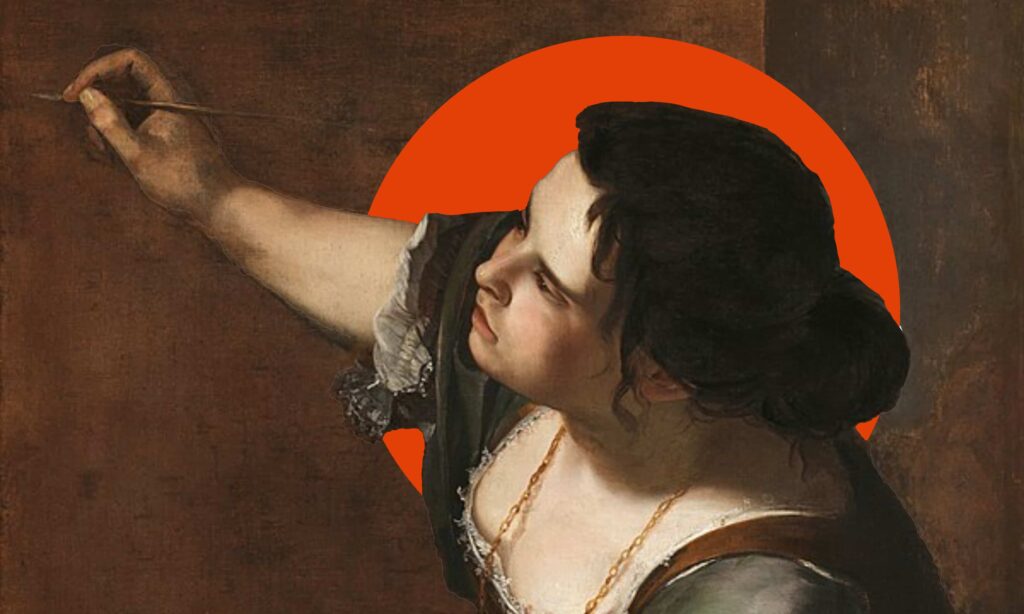
The Artemisia, also known as the mugwort flower, is a symbol of gratitude, the leaves of the plant give energy and certainly have nothing to do with addiction to absinthe, a substance obtained from them, which generates addiction when associated with alcoholic substances. Gratitude is the feeling that each of us should have towards every artist. Here, we can also grasp the energy and strength in art through historical information referable to a great woman and artist: Artemisia Gentileschi.
As I did with Carvavaggio, whose history I found it necessary to trace, I will do the same with Artemisia who was herself a painter of the Caravaggesque school.
I believe that the environment, and precisely the events in the history belonging to each of us, determines and conditions our individual way of feeling and living; often, if not in most cases, these traces remain silent, hidden from the eyes of most. In art, however, these same traces find form and a loud voice, telling us about intimate and personal aspects of those born with the gift of knowing how to speak about themselves through this medium.
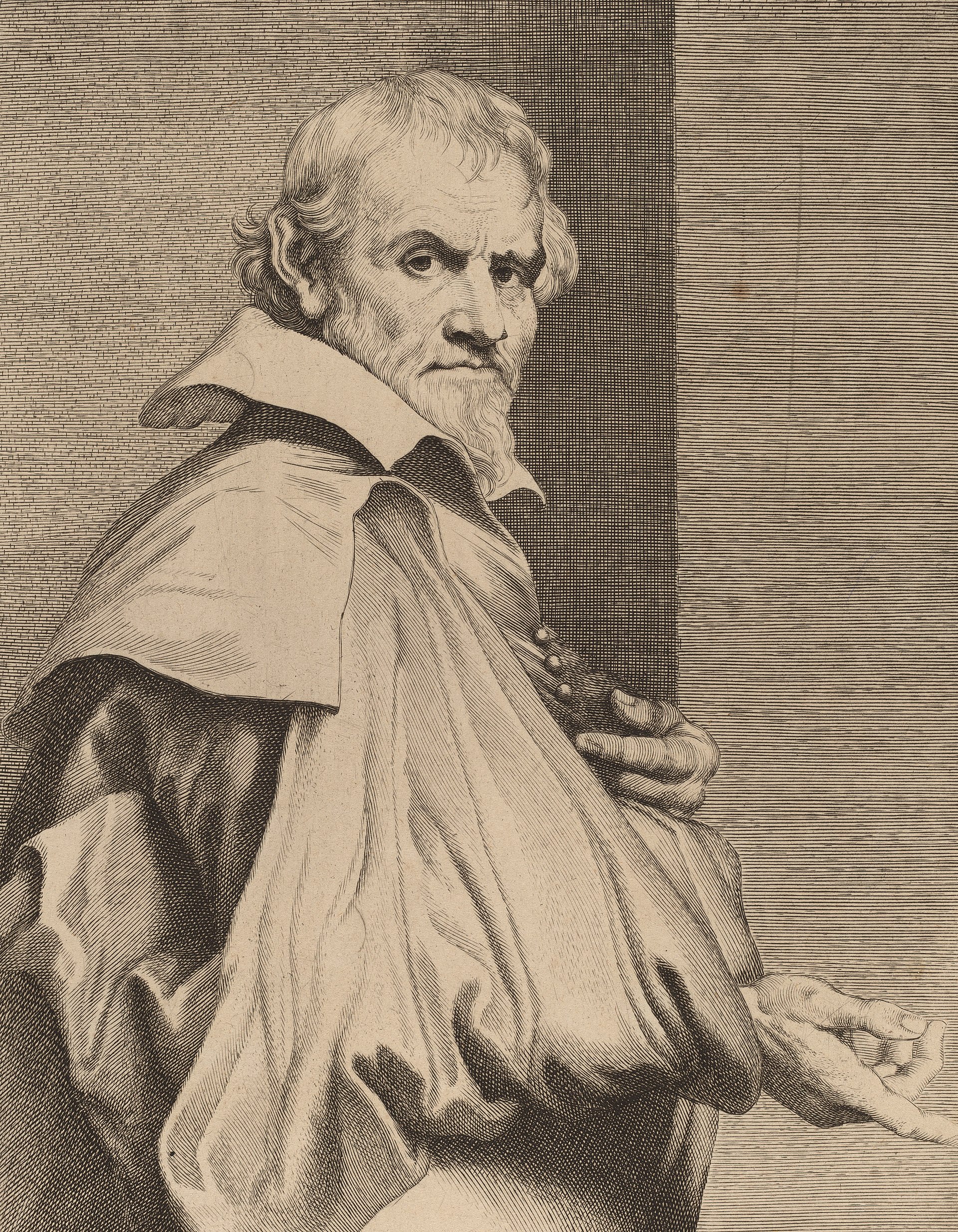
A painter of the Caravaggesque school, Artemisia was born in Rome in 1593 to Prudenzia Montoni and Orazio Gentileschi, and she died in Naples around 1656. The father figure, the only parental figure of reference after Prudenzia’s premature death, was fundamental in Artemisia’s artistic and personal training. The man, originally from Pisa, was a painter.
Orazio’s style at the beginning of his career was quite devoid of character and originality. Only once he moved to Rome was the artist able to find and above all to manifest his own way of expressing himself, strongly influenced and inspired by the unconventional painting of Michelangelo Merisi, better known as Caravaggio.
Nowadays it is simple, if not obvious, to admire Caravaggio, but at the time Merisi’s bold choices were not always understood and working like him, or rather in his style, was not so conventional; in a Rome full of contradictions, divided between tradition and innovation, following the road inaugurated by Caravaggio meant having courage. Orazio embarked on this new pictorial path by modifying and enriching what was his initial style, involving the young Artemisia in this new artistic journey.
Early training
Orazio personally took care of the artistic education of his daughter, allowing her to cultivate her personal ambitions beyond the tight meshes that harnessed the lives of women of the time. The painter, recognizing Artemisia’s artistic qualities, brought her closer to figurative art, first teaching her how to master the “materials of the trade”, then by encouraging her how to familiarise with famous works by asking her work from drawings. Finally, he allowed his daughter to intervene directly in his own canvases.
We do not have extensive documentary sources on Artemisia’s artistic training; to tell the truth we have almost nothing that documents these first years of study and exercises of technique. However, a proud letter from Orazio, written in 1612 to the Grand Duchess of Tuscany, makes us understand that at that time his daughter already had adequate skills to express herself in art with maturity and mastery.
Raped and abused by her teacher, Agostino Tassi

Another certain fact about Artemisia’s formation is linked to what is certainly the most traumatic and well-known event in the young artist’s life. As already mentioned, Orazio was well aware of the artistic value of his daughter, for this reason he decided to send her to perfect the pictorial techniques at the studio of one of his friends, the painter: Agostino Tassi. This man, despite having artistic abilities, was known above all for his angry character, which, however, had never directly revealed itself towards Orazio Gentileschi, who was sure of the man’s loyalty and feelings of friendship. He therefore did not hesitate to entrust the young Artemisia to him in order to improve her technique.
Unfortunately, the true nature of Augustino manifested itself precisely towards the young woman who, after refusing the painter’s advances, in 1611 was the victim of violence by the artist who was supposed to be her teacher. Artemisia was actually a victim of Augustino in more ways than one, because after having raped her, he promised a reparatory marriage in order to continue to frequent her.
Only in 1612 Artemisia and her father Orazio discovered that Agostino was already married and that therefore marriage was out of the question. Doubly wounded in his honor, Orazio, together with his daughter, denounced Tassi’s violence to Pope Paul V.
The young woman courageously submitted herself in court to all the humiliating evidence requirements that were demanded at that time for victims of such violence. Artemisia, strong in the support of her father, but above all driven by great will and determination, managed to overcome all the humiliating bureaucratic processes that tended to judge women more harshly than the real perpetrators of the crime. She thus demonstrated also in her private life the same strength that can be seen in the women protagonists of her paintings. During the trial, the young Artemisia also had to prove the validity of her accusation by being subjected to physical torture, especially to the hands.
These ‘procedures’ could have ended her career, but the painter was able to resist the pain with courage, until Tassi was sentenced in November 1612.
In reality, the painter did not actually serve his sentence, but paradoxically continued the “popular trial” against Artemisia, who the day after the conviction of her rapist was in fact forced to marry a man, chosen for her by her father, to try to save her reputation as a woman and a painter.
Moving to Florence marked a new chapter in Artemisia’s life…
After this last act against her, Artemisia chose to leave Rome and her father, and together with her husband moved to Florence. When she arrived in Tuscany, she finally saw the recognition she deserved, becoming part of the Medici circle of artists chosen by Cosimo II to give prestige to the culture of the city. Florence was also important for expanding Artemisia’s personal connections and she became friends with Galileo Galilei and Michelangelo Buonarroti. Thanks to the latter, she also managed to get in touch and then to be admitted to the Academy of Drawing Arts in Florence.
While Artemisia’s fame increased, her family’s assets decreased due to her husband’s debts and the economic situation became so serious that it pushed the family to return to Rome. The welcome she received made it clear to everyone that Artemisia’s artistic value was finally recognized in Rome, but the painter did not stay long in the city; she made numerous trips that took her to Venice, Genoa, England and above all to Naples where finally began to feel at home. It was in Naples that Artemisia died, most likely during the terrible plague that struck the city in 1656.
Not only a painter, but a champion of women’s rights
Past and even contemporary evaluations have focused excessively on the personal stories of the painter, partly leaving out the artistic value of the woman
I believe it is essential to continue talking about Artemisia Gentileschi while highlighting her value as a painter. Focusing excessively on the personal stories of the painter does not do her justice. Artemisia was not only a champion of her own rights or women’s rights, she was, for most of her life, an artist who found herself fighting with great determination to be recognised and valued as a painter on the same standing as her male colleagues.
I want to say that if it is true that Artemisia fought to have her rights as a woman recognized, it is equally true that she fought with equal determination to continue living on art and as an artist, to the point of not hesitating to leave Rome, her city of origin and training.
Just to underline and emphasize the role of Artemisia as a painter, I decided not to talk about her through the numerous heroine protagonists of her paintings, but through the examination of a self-portrait completed in 1639 and currently preserved in London at Kensington Palace.
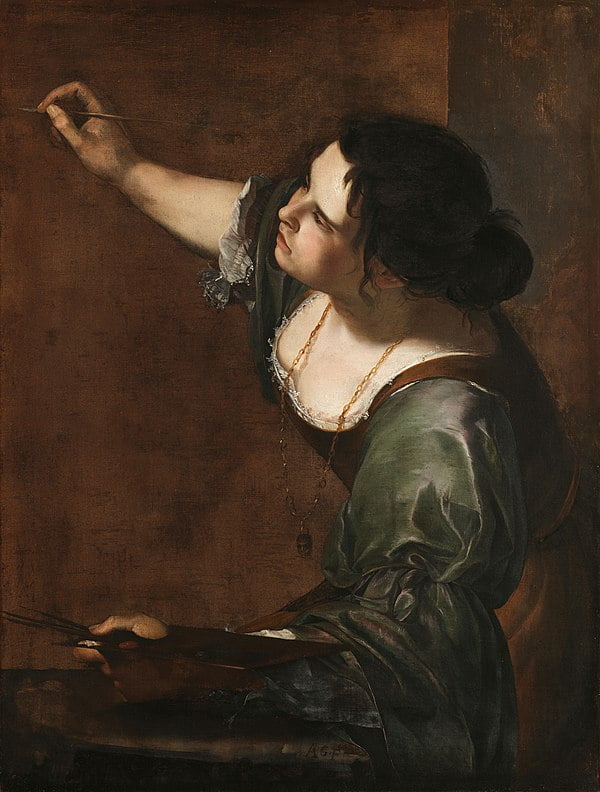
Self-Portrait as the Allegory of Painting, analysis
In this painting created for Charles I, the woman is portrayed as the essence of painting in an allegory that celebrates this art. The image presents an idealised Artemisia, where she has deliberately transformed her own appearance and colours.
In fact, the woman depicted on the canvas has black hair, not auburn like Artemisia had, gathered at the bottom in a rather disordered way. Her fair-skinned face is not turned towards the audience, but rather towards a canvas she is working on, and therefore her features are not visible to the observer. The only “charming” element in the painting is represented by a long gold chain hanging from the woman’s neck, from which a mask-shaped medallion hangs. Her right arm is raised, holding a brush in the act of painting, while with her left hand she holds other brushes and the palette.
The three-quarter pose of the woman’s figure suggests that Artemisia had to use two mirrors in order to create this self-portrait. In her visible features, we can clearly detect the physical resemblance and attitudes of the female characters that populate her paintings. What also appears evident to me here, even more than the similarity of features, is the setting of the hands, common to all the women designed by Artemisia; heroines who manage to escape their executioners and obtain justice These heroines are driven by a force that is not only interior, but also physical and one that acts precisely through skilled, strong and industrious hands.
Despite the obvious points of contact with other figures she painted, in this allegory Artemisia also represents herself in her “nakedness”, revealing her true essence to the world, ceasing to be Artemisia the woman, in order expose the very essence of painting as well as the profound and tumultuous creative process that was within her.
Read this article in Italian (Leggi questo articolo in italiano) →
What you may have missed in November in 2021
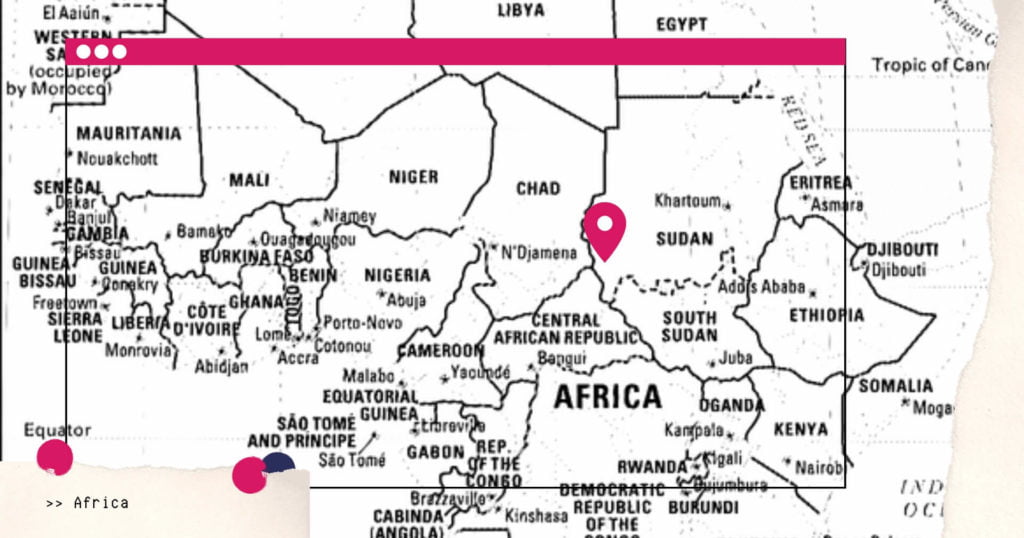
AFRICA
01.11.21: Nigeria. A 21-story building collapsed in Lagos killing dozens of people. The exact toll will take several days to ascertain.
06.11.21: Sierra Leone. About a 100 people have died and many have been injured after an oil tanker exploded following a collision in the capital, Freetown.
08.11.21: Niger. At least 26 kindergarten school children have been killed when their straw-hut classroom caught fire in the southern Maradi region.
09.11.21: Ethiopia. The United Nations called for the immediate release of a number of its employees who were arrested by government forces. Six were released shortly after their arrest, but 16 are still being held without charge. The UN’s condemnation of the government’s escalating conflict with Tigray forces may be linked to the arrests.
11.11.21: South Africa. Frederik Willem de Klerk has died, aged 85. He was the country’s last apartheid president and instrumental in dismantling the system. He left a posthumous apology for the pain caused by enforced segregation.
15.11.21: Canary Islands (Spain). Coast guards rescued 62 refugees who were drifting in a boat near the coast, but were too late for eight of the passengers who had died on the perilous journey.
16.11.21: Burkina Faso. As hundreds of people are going missing amid extremist violence, protesters are demanding the resignation of President Kaboré over his handling of the situation.
16.11.21: Uganda. Suicide bombs in two nearby locations in Kampala caused a number of fatalities and several injuries.
22.11.21: Sudan. In what is coming across as a token gesture, Abdalla Hamdok was reinstated by the military government as Prime Minister, as the death toll of those killed in protests exceeds 40.
29.11.21: South Africa. President Cyril Ramaphosa said he was “deeply disappointed” by what he described as discriminatory practices leading to travel bans being imposed on his country following the identification of the Omicron variant of the coronavirus. He is calling for the lifting of the restrictions.
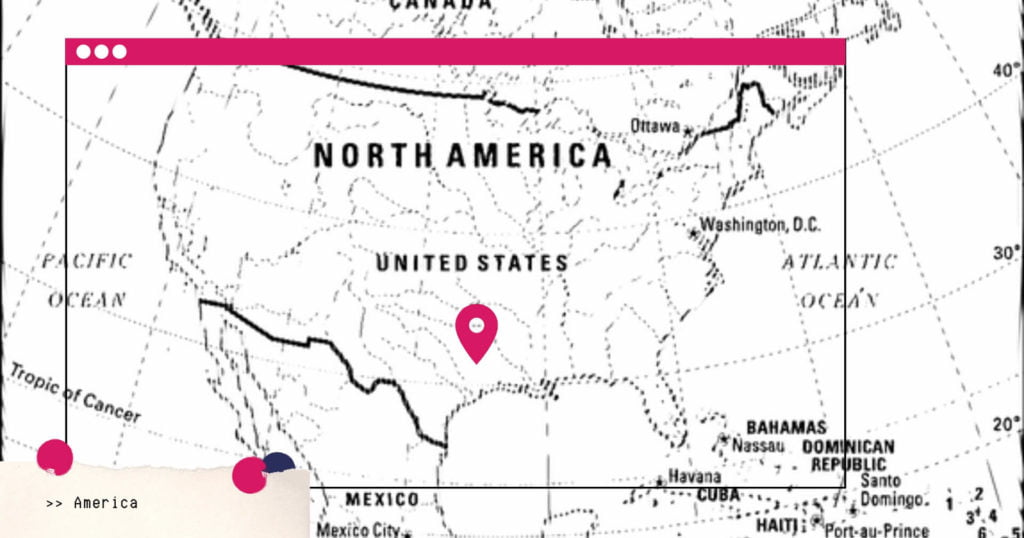
THE AMERICAS
01.11.21: Mexico. Eleven men were found riddled with bullets in Michoacán, near the Jalisco border. So far, none of the bodies have been identified.
05.11.21: USA. At least eight people died and scores were injured owing to a crowd surge at a festival at Astroworld in Huston.
06.11.21: Mexico. Nineteen people were killed and others were injured when the brakes of a transport truck heading for the capital jammed as it was nearing the toll gates on the Mexico City-Puebla highway. Several vehicles were hit and burst into flames.
09.11.21: Nicaragua. President Daniel Ortega comfortably won a fourth term in office in a sham election that was held against a backdrop of oppression and the arrest of political rivals.
13.11.21: Ecuador. As many as 70 prisoners may have been killed in gang fighting that started on Friday evening at the Litoral Penitentiary in the city of Guayaquil. Over a hundred inmates died in similar clashes there only last September.
23.11.21: St Vincent and the Grenadines. Sir James Mitchell, the nation’s second prime minister died aged 90.
26.11.21: USA. Composer and lyricist Stephan Sondheim has died at his home in Roxbury aged 91. He was one of the giants of the American musical.
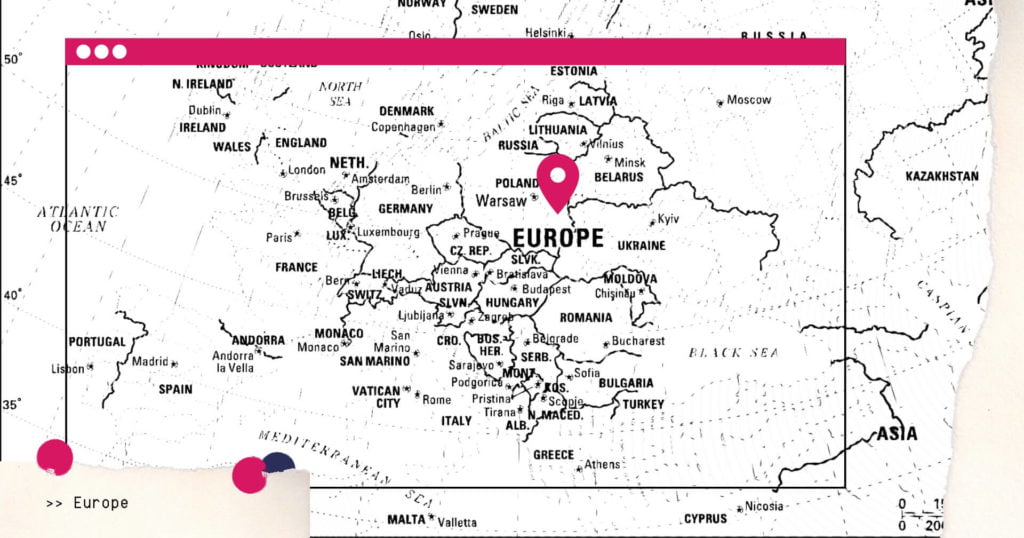
EUROPE
04.11.21: Bosnia Herzegovina. The country is facing an “existential threat” according to a report for the United Nations by the International High Representative in Bosnia, Christian Schmidt. The report accuses the Serbian nationalist, Milorad Dodik, who is a member of the country’s three-person presidency made up from the three ethnic groups, of attempting to create a sectarian army in contravention of the Dayton Agreement which ended the Bosnian war.
15.11.21: Bulgaria. The anti-corruption party, We Continue the Change (PP), which was only formed in September by Kiril Petkov and Assen Vassilev, won the parliamentary elections.
17.11.21: Poland-Belarus border. Some of the thousands of migrants stranded on the border are finally being provided with shelter by authorities in Belarus. Meanwhile Poland is pursuing its harsh stance which is denying shelter to migrants amidst freezing conditions as well as barring NGOs from assisting them. Several people have already died of exposure. The EU is accusing Belarus of orchestrating the crisis and “weaponizing” the migrants.
24.11.21: Sweden. Magdalena Andersson, the nation’s first ever female Prime Minister, resigned just hours after she was appointed, when her coalition partner quit the government and her budget failed to pass.
24.11.21: English Channel: An inflatable dinghy full of migrants trying to get across the Channel from France to England capsized killing 27 of the 30 passengers that had been on board.
29.11.21: UK. The government announced its own initiative to discuss the migrant crisis that led to the deaths of 27 migrants in the Channel last week. The UK Home Secretary Priti Patel was barred from a meeting of European ministers held over the weekend following British Prime Minister Boris Johnson’s publication of a blunt letter sent to French President Emmanuel Macron setting out London’s demands for concerted action on refugees.
29.11.21: Sweden. Magdalena Andersson, has been re-elected as Prime Minister less than a week after having been ousted.
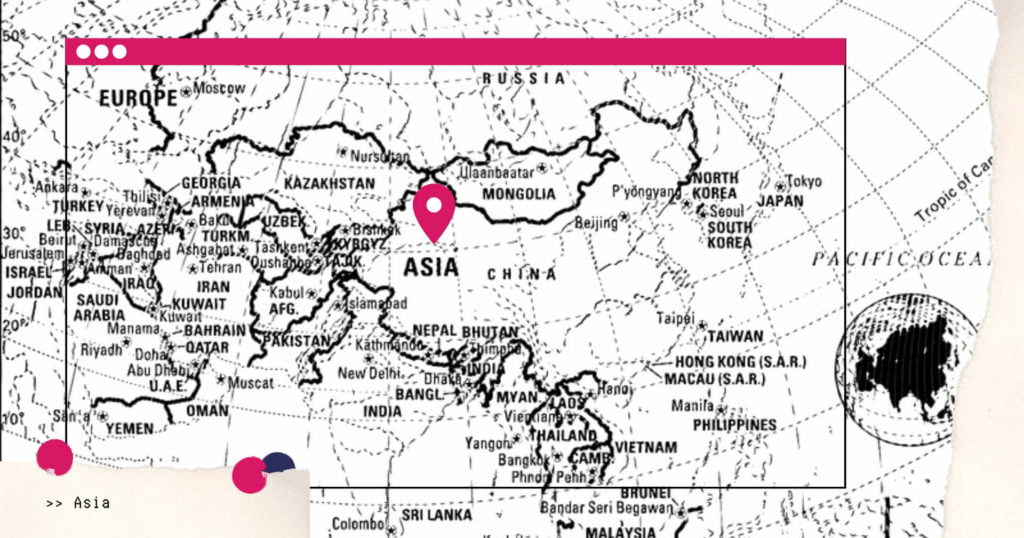
ASIA
02.11.21: Afghanistan. The country’s largest military hospital has been attacked with blasts and gunfire. Around 20 people have been killed and scores were wounded.
06.11.21: Iraq. Prime Minister Mustafa al-Kadhimi survived an assassination attempt after explosive-laden drones hit his home in the capital’s high security Green Zone.
16.11.21: Armenia. Over a dozen Armenian soldiers have been killed during a border clash with Azerbaijan.
19.11.21: India. Parliament has voted to repeal controversial farm laws after a u-turn by Prime Minister Modi.
23.11.21: South Korea. Chun Doo-hwan, who autocratically led the nation for much of the 1980s with US backing, has died aged 90.
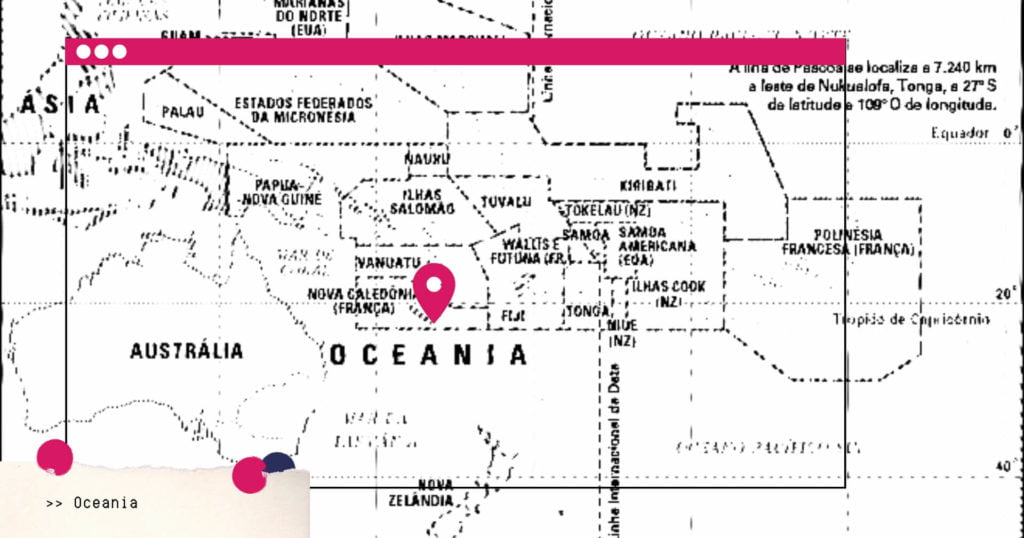
OCEANIA
26.11.21: Solomon Islands. Prime Minister Manasseh Sogavare blamed foreign interference over his government’s decision to switch alliances from Taiwan to Beijing in the wake of recent anti-government protests and riots in the capital.
WORLD
01.11.21: The John Hopkins University tracker suggests that well over 5 million people have died so far due to COVID-19 pandemic.
02.11.21: Many leaders at the COP26 in Glasgow have committed to stop deforestation by the end of the decade and to cut methane, which though not as long lasting as carbon dioxide, is 80% more potent as a greenhouse gas. The last target of cutting deforestation by half by 2020, however, has not yet been met.
13.11.21: COP26 concluded this evening a day later than planned. The final agreement was watered down even further at the last minute by India and falls well short of what is needed to avert environmental catastrophe. Alok Sharma, the COP26 President, was so overcome by disappointment as he apologised to the world, that he had to pause before he could continue with his speech.
24.11.21: The World Health Organisation has been formally notified of a new variant of the coronavirus which had been identified earlier this month in South Africa.
EU
15.11.21: The EU agreed new sanctions on Belarus in response to the country’s “weaponizing” of migrants that are deliberately being amassed on the Polish border.
Tell us what have YOU done for Justice this year?
We are actually curious what you have done this year. Please write to us using our contact form.
